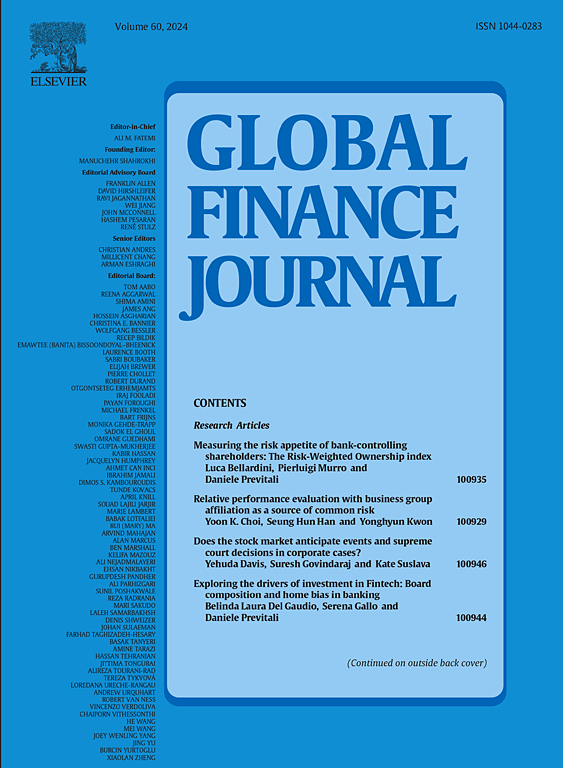Research on safe-haven currencies under global uncertainty —A new perception based on the East Asian market
Abstract
The backdrop of this research is the high global uncertainty that has amplified the demand for safe-haven assets, particularly in the East Asian market. This paper redefines the concept of a “safe-haven” currency to align with contemporary geopolitical and trade policy uncertainties, diverging from the traditional volatility index (VIX) risk measure. We investigate the risk aversion properties of East Asian currencies under these nonmarket risks using dynamic heterogeneous panel data analysis and robustness checks with double machine learning. Empirical results reveal that no East Asian currency qualifies as a safe haven under geopolitical risk and trade policy uncertainty. However, the Japanese yen (JPY) maintains its status under the VIX indicator. This study highlights the insufficiency of traditional safe havens like the JPY and underscores the importance of considering nonmarket risks, challenging the effectiveness of traditional investment strategies amid modern geopolitical and policy uncertainties. The findings suggest that investors should prioritize nonmarket risks and call for reform in the global monetary system to enhance currency resilience. The novel methodological approach to evaluating safe-haven currencies addresses the need for diversified currency portfolios to mitigate nonmarket risks.

 求助内容:
求助内容: 应助结果提醒方式:
应助结果提醒方式:


